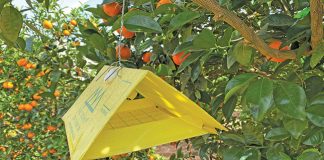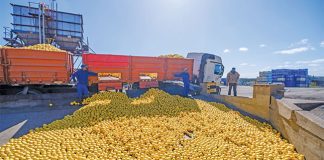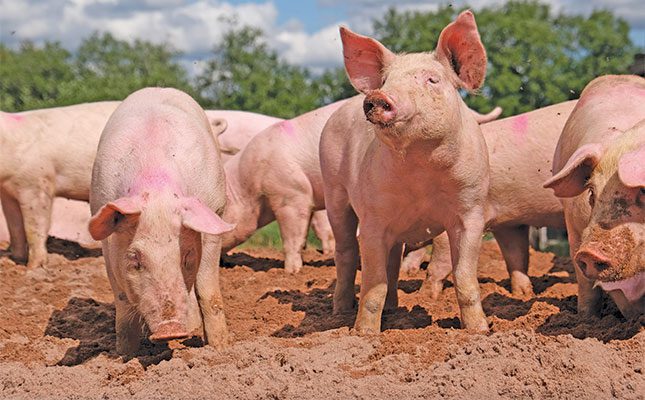
Photo: Wikimedia Commons
Pig farming in South Africa holds immense potential, particularly in light of the nation’s growing demand for pork and the increasing focus on food security. However, as with any business, entering the pig farming industry requires careful planning, detailed budgeting, and a strong understanding of market dynamics.
READ The critical role of proper nutrition in pig and poultry production
“A farmer should start by clearly defining and understanding the specifications of their project,” says Mosele Lepheane, director of Free State piggery business Mos M Farms.
“One common mistake farmers make is skipping the essential research related to their specific goals. To avoid this, it’s beneficial to visit other farms, observe different operations, and evaluate which approaches are best suited to your farm or operational space,” she adds.
Starting with a business plan
A robust business plan lays the foundation for any successful farming operation. According to Lepheane, a well-crafted business plan is far more than just a document for securing funding; it is a comprehensive roadmap guiding a farm’s direction and decision-making.
“A business plan is essential because it translates ideas into a concrete, strategic plan. Drafting a business plan encourages the business owner to think strategically, outlining clear goals and the steps needed to reach them,” she says.
Traditional business plans may appear extensive, but newer tools like a ‘business canvas’ are gaining popularity among farmers. The business canvas, a one-page visual overview, includes elements such as value proposition, target customers, revenue streams, and key resources.
READ Get credit! Tips on writing a business plan for your farm
It provides a streamlined alternative to a full-length business plan, allowing for quick reference and easy adjustments.
Whether you use a traditional business plan or a business canvas, Lepheane emphasises the importance of clarity and focus, particularly for farmers who are seeking funding.
“If the business plan is being developed for potential funders, it’s essential to include specific steps that demonstrate how the business will generate revenue and repay any funding. This includes detailed operational, production, and sales plans to show a clear path to profitability,” she explains.
Essential equipment and infrastructure
Pig farming requires specific infrastructure and equipment to ensure efficient operations, proper animal welfare, and overall productivity. Lepheane says that choosing quality equipment suited to the scale of the farm is vital for optimising efficiency.
She adds that farrowing crates are essential for safely housing sows during birthing, as they reduce the risk of piglets being crushed. Durable pens keep pigs safe and separate them by age or size, as necessary. As for bedding, farmers can make use straw, wood shavings, or similar materials to help keep pigs comfortable and maintain cleanliness.
When it comes to feeding and watering systems, automatic and manual feeders allow for regular, measured portions, reducing feed waste, while nipple drinkers or troughs ensure a constant supply of fresh water.
“Heating and ventilation are also important because they help maintain appropriate temperatures, particularly for piglets. Proper airflow is crucial to remove moisture and gases like ammonia, enhancing air quality and animal health,” she says.
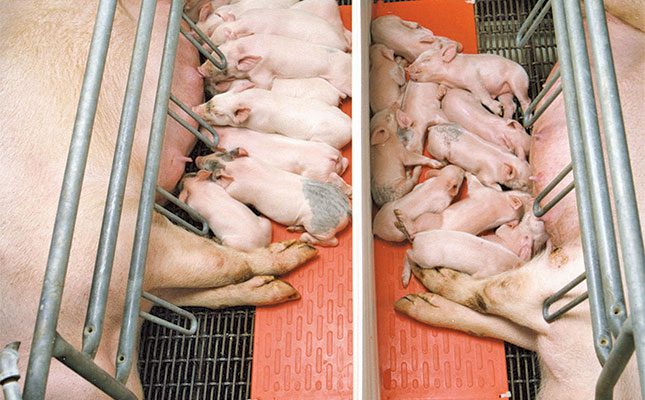
For waste management, Lepheane says scrapers, pumps, and storage solutions help manage manure effectively, while composters are a sustainable option for waste storage and processing.
She adds that basic health monitoring tools, such as syringes and disinfectants, are necessary to ensure pigs remain healthy, and when it comes to transport equipment, farmers can make use of loading ramps and livestock trailers, because these facilitate safe movement of pigs between pens or for transportation to markets.
“In terms of breeding equipment, artificial insemination kits and record-keeping software are important. The tracking of genetics and health data is essential to maintain a productive pig herd and manage breeding,” she says.
“Quality equipment, although a substantial investment, is a significant contributor to the farm’s overall productivity and profitability.”
Financial planning and cash flow management
Financial stability is fundamental to running a sustainable farming operation. According to Lepheane, monitoring cash flow is key for pig farmers to remain financially solvent and adaptable.
“Cash flow projections are another crucial step,” she explains. “Accurate projections will guide decisions on the scale of the project, helping you determine the investment required to reach your desired income. These projections will also clarify how many animals you need, the size of any necessary infrastructure, feed requirements, labour needs, and other operational costs.”
READ Understand livestock pricing structures to avoid financial losses
When it comes to monitoring cash flow, Lepheane says keeping track of monthly cash flow statements works best because these reflect all income and expenditures, including sales, loan inflows, as well as feed, labour, and utility costs. By reviewing cash flow monthly, farmers can manage spending trends and identify potential savings.
“Having a budget and actual reports [on the money that goes out and the money that comes in] are good for the business side of things as these reports compare projected financial goals against actual figures, helping farmers adjust strategies as needed,” she says.
“Tracking payments that are due can help farmers avoid financial strain and ensure timely income.”
She says seasonal cash flow forecasts are another thing to pay attention to because of the fact that farming often follows seasonal patterns. It’s therefore vital to predict periods of high and low cash flow, allowing farmers to save funds for leaner times.
Utilising accounting software designed for small farms, such as Sage, QuickBooks, or Xero, can simplify these processes.
“The best way to monitor cash flow is to have a reliable bookkeeping system that provides regular, detailed reports,” says Lepheane. “Whether through a professional bookkeeper or specialised software, regular cash flow reviews give farmers confidence in their financial health and help them plan for growth.”
Market research and marketing strategies
Pig farming in South Africa faces a unique market landscape, with demand regularly outstripping local production, leading to an annual import of approximately 25 000t of pork. This gap presents a significant opportunity for local pig farmers to meet demand and reduce dependency on imports.
“To secure a market, pig farmers must prioritise market research,” advises Lepheane. “With so much information available, it’s essential to actively seek out market opportunities instead of waiting for them to come to you.”
Understanding consumer preferences, identifying underserved market segments, and analysing competitors are essential steps in refining business strategies.
In addition to research, forming strategic collaborations can enhance market access. Partnerships with abattoirs, butcheries, and auctioneers are invaluable for improving reach and negotiating better prices.
Small-scale farmers, in particular, can benefit from forming co-operatives to sell in bulk, strengthening their bargaining power and gaining access to larger buyers.
This collaborative approach also allows farmers to enter more profitable stages of the pork value chain, such as processing and retail, ultimately increasing profitability and market stability.
Training and practical knowledge
To be successful in pig farming, practical skills are just as crucial as theoretical knowledge. Lepheane advises prospective farmers to invest in skills development by learning from established operations.
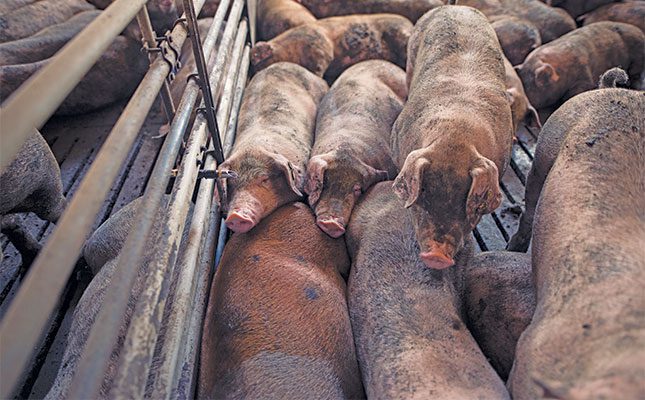
“Hands-on experience is invaluable,” she says. “One common mistake farmers make is skipping essential research related to their specific goals. Visiting other farms, observing operations, and elevating which approaches suit your farm is essential.”
Lepheane also emphasises the ongoing importance of education, noting that courses in farm management, livestock health, and market research, among others, equip farmers with the tools needed for sustainable growth.
She says organisations like the Agricultural Research Council and local agricultural colleges often offer training programmes and short courses designed to improve farmers’ skills and knowledge.
Pig farming in South Africa offers significant potential for growth and profitability, especially with the nation’s ongoing pork shortage. However, success in this sector requires a strong commitment to planning, market research, and financial management.
By following the advice of industry experts like Lepheane, who advocate for a well-defined business plan, meticulous cash flow management, and strategic market engagement, farmers can build resilient operations that withstand market challenges.
From initial research to ongoing cash flow monitoring, each step contributes to a thriving pig farming business. By securing the necessary equipment, building strategic market connections, and investing in their own education, South African pig farmers can maximise their profitability, meet rising demand, and contribute to local food security.
“Pig farming is not just about raising animals; it’s about building a sustainable, profitable business that benefits the entire agricultural community,” Lepheane says.
Email Mosele Lepheane at [email protected].











